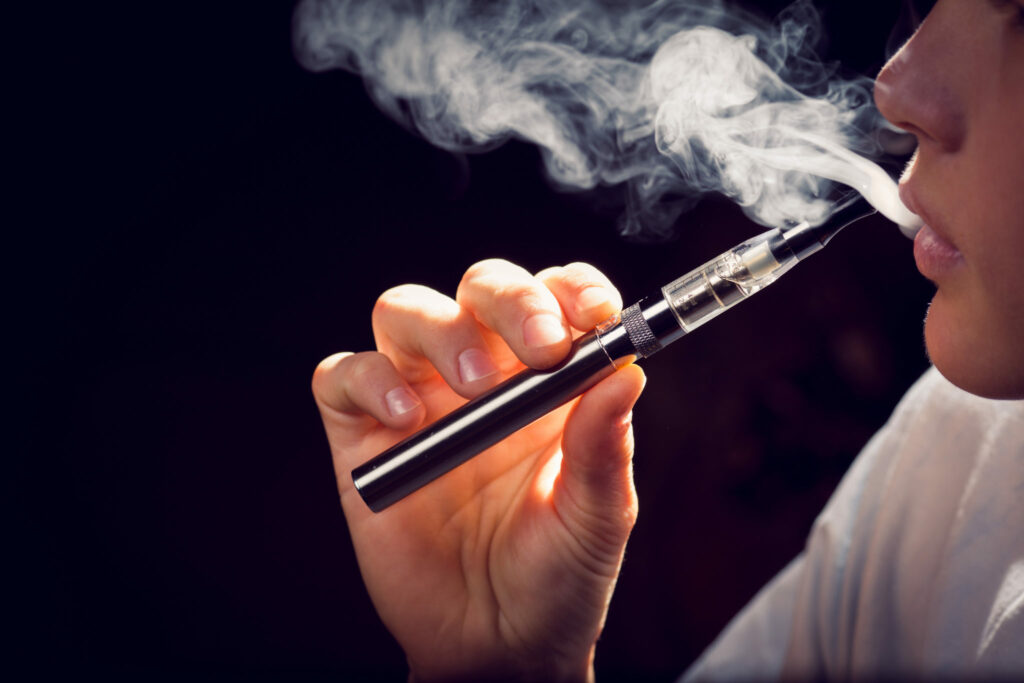Mysterious Vaping Illness on the Rise

It doesn’t take a biological dentist in Denver to know the dangers smoking presents to our oral and overall health. In fact, the known health risks associated with smoking have led a growing number of kids and adults to make the switch to vaping, a habit many people assume is safer than smoking cigarettes. However, a rising epidemic of vaping related illnesses have made this already dangerous habit a potentially life threatening one.
Health officials across the country continue to scramble to determine the cause behind an outbreak of lung illnesses befalling people who vape. Even more perplexing, the widespread nature of the illnesses and the variety of vaping products being used are making that investigation even more challenging.
With nearly 400 hundred cases of severe breathing illnesses being reported among patients who vape, six people have died as a result of an illness that has appeared in 36 states and the U.S. Virgin Islands, according to the Centers for Disease Control and Prevention.
Health officials have yet to identify why vapers – the majority of which are young men – have started to develop such severe cases of pneumonia. Health agencies across the country continue to search for answers by running tests on samples from products patients have used and looking for potential connecting threads that link these cases.
With answers in very short supply, public officials in states like California and Michigan have even started to contemplate a ban on e-cigarettes.
Let’s take a look at a few of the questions health officials need to answer the most.
Is a specific substance or product to blame?
Typically, when an illness befalls a subset of the population that all share a habit there’s a common product to blame. Unfortunately, in the case vaping related illnesses, there’s no one shared product being used by the affected patients.
The most common trait among patients seems to be the fact the majority vaped some type of product containing THC, the maintain psychoactive compound in marijuana. Others have reported vaping a combination of nicotine and THC, while others report only vaping nicotine. Health officials have admitted that since marijuana is still illegal in some states, patients may be reluctant to answer honestly about THC use.
Not knowing what potentially connects these illnesses also makes it harder to test the vaping products patients have used. Since health experts don’t know what to look for they don’t know what they should be testing for. By taking such a broad approach to testing, it takes far longer to identify any chemical than if you know what to look for.
Is vaping causing one illness or multiple types?
Health officials remain uncertain whether they’re dealing with multiple symptoms or one definitive illness. Many of the cases share symptoms that include vomiting, fever, fatigue, and nausea. However, some patients have experienced these illnesses for only a few days while others have lasted for weeks. While many have developed respiratory issues, others have not.
Last month, the CDC set a definition on what constitutes a vaping related illness to include anyone who: vaped in the last three months; showing spots on the lungs; no signs of pulmonary infection; and no evidence of any other diagnosable disease.
Is this illness new or just now being recognized?
Perhaps the most troubling question health officials are trying to answer is whether this outbreak of vaping related illnesses is new or just newly noticed. Unfortunately, health officials still don’t know the answer to this pressing question.
State health officials in Illinois and Wisconsin have been able to track the earliest signs of this disease back to April of this year, but no one knows if hospitals are just seeing a rise in illnesses that were previously unconnected to vaping or whether this illness is new.
This uncertainty makes actively vaping an incredibly dangerous hobby that health officials, including our biological dentist in Denver, would recommend that people immediately stop doing.
More Answers to Come
For too long, patients have considered vaping a healthier and safer alternative to smoking. What this mysterious new illness has helped to expose is that health officials still don’t know the full impact vaping has on the body. While vaping doesn’t require inhaling the tar and other carcinogens associated with cigarette smoke, vaping does still cause the user to inhale a variety of foreign chemicals that the body is ill-equipped to absorb.
You don’t need to be a biological dentist in Denver to know the dangers of smoking, and you don’t need to do much more than read the headlines to suspect vaping isn’t the answer either.
